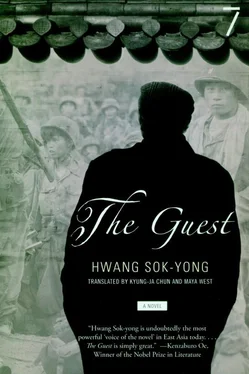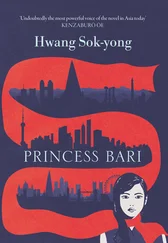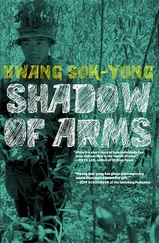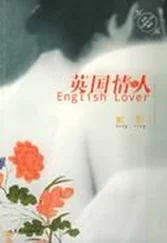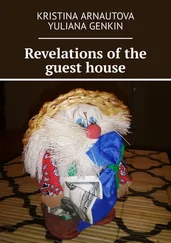When we were liberated from the Japanese, the first thing I did was search out Brother Ichiro. Like I said before, I learned all about Communism during my time in the mines, so when we formed the Hwanghae Province Regional Committee, I told Mr. Kang about Comrade Pak Illang. While you Jesus freaks were organizing your Chosŏn Democratic Party, we were busy too, forming our Communist Party. We set up a security office at the police station in town, held the People’s Committee meetings in the county hall, and started giving lessons at the community center. In Ch’ansaemgol, Ichiro the village servant, two other household servants, and Uncle Chungson were the first to join the party. They were all recommended by me, you know.
In three months, from October to January, Comrade Pak Illang learned to read and write. He left Ch’ansaemgol and went to work as a guard at the county hall. Day in and day out, he memorized the han’gŭl alphabet that Mr. Kang had written out for him with a brush. A man from Pyongyang who’d served in the China’s Eighth Route Army showed us how to apply layers and layers of pork fat onto a wooden board and paste a thick laminated sheet of paper lacquered with bean oil on top of it — if you do that, you can write on the board with a stick, then lift the oiled paper to erase it. He told us that was how they studied during field operations. Ichiro, the same Ichiro you all thought was a brainless half-wit, the same Ichiro you talked down to — just think about it for a second — that same Ichiro learned to read and write. He learned to write his own name. Pak Illang. If that’s not what the liberation was all about, I don’t know what is. Comrade Pak Illang, who used to carry firewood and work like a cow while you people ate white rice, slept under warm blankets, learned at schools, sat in churches, read Bibles, prayed and sang hymns — well, he learned too, and now he could read and write words like land reform .
Because I helped to organize the Red Guards with members of the Democratic Youth League and the Women’s League, I was put in charge of security. I ended up going with Brother Illang when he went up to Pyongyang to take his training course. We got on the train in Sariwŏn. I had a little spending money, so I bought some soft drinks and boiled eggs. Brother Illang ate an entire case of eggs in one sitting. I think I had three or so myself. Back then I hadn’t yet broken ties with the idea of the family system, so I still called him “brother.” I said to him, Brother, you’re eating way too much — you’ll give yourself indigestion.
He told me he’d had a couple of eggs before, at the village feasts, but he’d had to eat them so sparingly — he’d just always wanted to eat them to his heart’s content. There are ten eggs in one case, you know.
At the training session in Pyongyang, they knew there was no way any talk about Bolshevism or the writings of Marx and Lenin would ever make any sense to us. We’d all just barely finished learning han’gŭl , and the only use we ever had for books until then was to roll cigarettes or wipe our asses — big, complicated words were still a bit beyond us. But you see, the way the Japanese had oppressed us, the way the Japanese collaborators and the landowners had, step by step, ruined our lives — that was easy to understand. Especially when it was explained to us in simple, easy words, like a children’s story:
“Comrades, open your hands and look down at your ten fingers. Seven of your ten fingers are tenants who don’t have an inch of their own land and poor farmers who do have a bit of land but have to work as tenants, too. The three fingers that are left are the Japanese companies and the pro-Japanese landowners. Now, let’s say that all the farmland in the country equals ten. Those three fingers own eight out of that ten. And that’s only counting the rice paddies and the fields, since the rest of the land and the forests belonged to the Japanese. To prove that we are truly free, that we have completely driven out the Japanese, the People need to take back their land. Comrades, what is feudalism? Feudalism is a system where the king dishes out land to a handful of subjects who are willing to guard him, with the lower-ranking officials and the yangban 33class controlling the common people and forcing them to work as tenants. When our king surrendered to the Japanese, our nation became a Japanese colony, and the emperor of Japan and the Japanese governor-general took his place. Soon after that, the yangban became Japanese collaborators, which made the life of the common people even worse than before. Comrades who owned no land and had no education worked their fingers to the bone, living as servants or dirt-poor farmhands for generations on end, but they were given nothing, nothing in return for their hard labor. Comrades, from now on, starting the moment you go back home, you must take back what is yours. No matter what, land should belong to those who farm it. When you go back, comrades, will you be able to tell the village elders and the gentle, honorable landlords to give back your land? They will shout, eyes glaring, angry that you dare to be so impertinent. If you feel frightened at the thought of this, you will be a slave to feudalism forever. Never forget that these are the enemies who sucked the blood of your ancestors, enemies of the People who must be overthrown. Come now, everyone, can you do it? Louder! Ah, naturally, in a small village you are bound to have emotional ties — there will be familiar faces and fond memories around every bend — if, however, you do not sever these ties, cutting them as with a knife, you will never be truly free.”
With simple words like these they taught us the foundation on which the reactionaries had built their lives was that of the feudalistic tenant system. In order to maintain feudalistic power in the rural areas, the landowners were sure to oppose any form of democratic reform. And yet, obviously, the land belonged to those who tilled it, those who had been tilling it for generations. The land that used to belong to the Japanese organizations, the land that belonged to those who worked for the Japanese or for the political organizations that were in place under Japanese rule, the land of those traitors of the People who fled their hometowns upon the nation’s liberation, any land over fifteen thousand p’yŏng owned by Korean landlords, any land, regardless of size, that had been used for tenant farming, and any land over fifteen thousand p’yŏng that was owned by the churches, temples, or other religious organizations — these were all subject to confiscation. Blind confiscation and blind distribution, that was the principle. We were fully prepared to deal with any resistance from those determined to hold fast to the old order.

The big landowners and those who had openly collaborated with the Japanese all fled, crossing down into the South. The ones who lagged behind, lingering too long in the North — they were mostly Christians. They felt that they hadn’t done anything they needed to be ashamed of, and they’d been told they would be free to worship in whatever way they chose.
After all, the ministers and presbyters were still busy trying to establish a nation of God by bringing the Chosŏn Democratic Party to life, regardless of the cost. In response to the Land Reform Order, the Christian Youth and churchgoers throughout the North launched various counteractive campaigns. Within a week of the order’s issuance the citizens and students of Hamhŭng held a large demonstration. The result? Six dead, thirty-three wounded, and over two thousand arrested. More demonstrations followed, in our district, in Changyŏn, and in Unnyul.
Читать дальше
